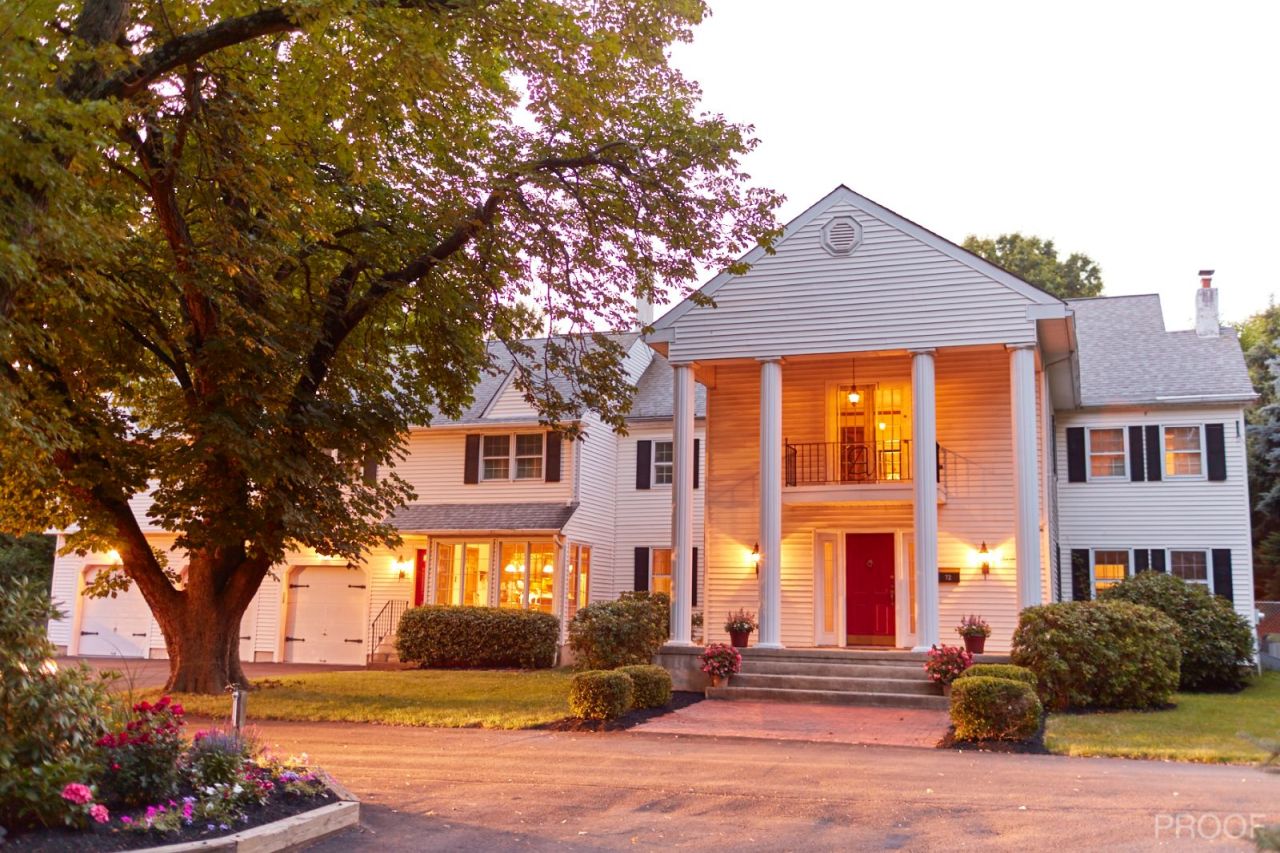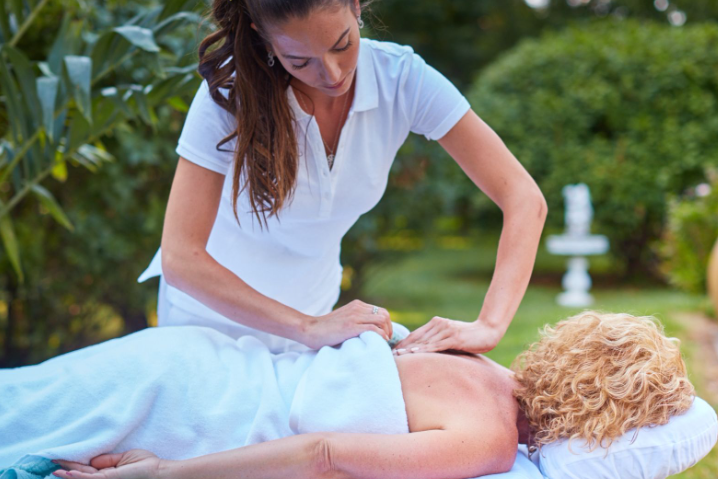Take A Tour
Alumni Testimonials
LOOKING FOR HELP
FOR YOURSELF OR A LOVED ONE?
Call us today and one of our counselors can help you or someone you love get into treatment today!
Call Now (844) 695-0083- Why Choose DayBreak
- Highest Rated Alcohol Detox Program
- Drug Detox Program
- Top Alcohol Rehab in Philadelphia (What Is It and What Is It Like)
- Drug Rehab in Philadelphia (How Does It Work and What Is it Like)
- How Much Does Rehab Cost in Philadelphia?
- How Long Is Detox?
- How Long Is Rehab?
- 30 Day (short term rehab)
- Long Term Rehab (60-90 Days)
- Additional Therapies & Addiction Treatments Available
- Does My Insurance Have Coverage For Rehab?
- MAT
- Cognitive Behavioral Therapy
- Dialectical Behavioral Therapy (DBT)
- Rational Emotive Behavioral Therapy (REBT)
- Dual Diagnosis Treatment
- EMDR
- Relapse Prevention
- Life Skills Training
- Vocational Training
- Group Therapy
- Experiential Therapy
- One on One Therapy
- Family Therapy
- Trauma Informed Therapy (After PTSD)
- Physical Fitness
- Off Site Activities
- Recovery Friendly Attractions near Philadelphia
Why Choose DayBreak
Philadelphia residents trust DayBreak treatment center to support them in overcoming their drug or alcohol addiction for the high level of care and detail that is put into each patient’s addiction treatment plans. With our high therapist ratio to patients, which is about 6 to 1 ratio, you can rest assured that you will have the support and guidance you need to heal from your addiction and create the new, balanced lifestyle in addiction recovery that you have been wanting. We value the needs of all of our patients and will take the time to get to know each patient on a personal level so that we can understand your needs for healing, your dreams for sobriety, and create an individualized treatment plan that will ensure you have long lasting success in addiction recovery. When you choose to heal with DayBreak, you will be provided a continuum of care that will support you in every phase of your early addiction recovery process.
Highest Rated Alcohol Detox Program
Alcohol detox is the first, crucial step in overcoming your alcohol addiction. Your body and brain functioning have become imbalanced throughout your alcohol addiction and you will need the ongoing support of medical professionals to support you as your body and brain begin to heal and shift back to normal functioning. During this process, you may experience severe, sometimes life threatening, withdrawal symptoms including seizures or delirium tremens (DTs). Our onsite clinical staff will be there with you every step of the way to support you in safely overcoming these sometimes painful and distressing withdrawal symptoms so that you can remain focused on your overarching goals for achieving sobriety and successfully move through your alcohol detox.
Drug Detox Program
Your experience in drug detox will be unique to you and will depend on your drug of choice whether it be herin, cocaine, meth, or prescription drugs. Your withdrawal symptoms will vary in severity depending on a number of factors that are specific to your individual circumstances with drug addiction. While you are in drug detox and experiencing withdrawal symptoms, you will be monitored by onsite medical professionals who will ensure that you remain comfortable, safe, and at ease throughout your detox process. Our team will help you overcome any physical or psychological withdrawal symptoms with the support of our whole person integrated approach to treatment that will target healing within your body, mind, and spirit. Through a combination of medication assisted treatment, behavioral therapy, and holistic treatments, you will receive the top quality care you need to overcome the unpleasant withdrawal symptoms and get through your drug detox comfortably and safely.
Top Alcohol Rehab in Philadelphia (What Is It and What Is It Like)
Once you have completed alcohol detox and addressed your physical dependence to alcohol, it is important to address your emotional and mental dependency through an alcohol rehab program. You will reside within our addiction treatment center where you will be living with other patients going through rehab. Your days will consist of structured routines including individual therapy, group therapy processes, and recreational activities to facilitate personal growth and wellness.
Within our facility, you will have your own room the has a full sized bed, access to an onsite gym, swimming pool, have your meals prepared for you by our onsite chefs who will provide with delicious and nutritious home cooked meals, and access to social activities such as games, arts and crafts, or tv rooms. Patients will have the opportunity to go out for offsite activities that will allow you to engage in fun, healing activities within nature and will be invited to participate in various group activities and events in the evenings.
Once you complete your inpatient alcohol rehab program, you will be invited to participate in outpatient rehab options that will support you in a smooth transition from the safe, secured environment of inpatient rehab back into everyday life. If patients are looking for a gradual return back into the community, we can offer sober living options to help in the transition period and increase your chances of success in addiction recovery.
Drug Rehab in Philadelphia (How Does It Work and What Is it Like)
Similar to alcohol rehab, Philadelphia drug rehab provides residents with either inpatient residential treatment or various outpatient treatment options that will support you in overcoming your drug addiction. You will work alongside our compassionate staff who will help to develop an individualized treatment plan that will be centered around your specific needs for healing and addressing the underlying causes of your drug addiction.
Patients will have the opportunity to develop an awareness of what your triggers are and the emotions or behaviors that have influenced your drug addiction. With the support of behavioral therapy, life skills training, and learning tools for relapse prevention, patients will be equipped to handle any curveballs that life throws your way to be able to remain true to your goals of living in sobriety.
If patients opt to do an outpatient rehab program, you will be able to participate in the following outpatient rehab methods:
- Partial hospitalization program (PHP)- Patients will attend the treatment center for 5-7 days each week for up to 6 hours a day. Patients will engage in the various therapy sessions with other patients in the recovery center to heal and overcome your drug addiction.
- Intensive outpatient program (IOP)- Patients have the flexibility in choosing when they attend the center for individual or group therapy processes which allows for the freedom to maintain employment or school responsibilities. Patients are encouraged to attend addiction recovery support groups such as 12 step or smart recovery meetings
- Aftercare programming – Patients can reside within a sober living home or attend support groups or alumni meetings to remain connected to the addiction recovery community.
How Much Does Rehab Cost in Philadelphia?
At DayBreak, we believe that every patient has the right to access addiction treatment support and will work with each patient to reduce any barriers to your success by finding methods of payment for the cost of rehab. We will work with you to find insurance coverage within your insurance provider, offer payment plans for those that need them, and form individualized treatment plans that will meet your individual needs.
We understand that patients often worry about the cost of attending treatment, but it is important to remember that when you were in your active addiction, you would stop at nothing to find ways to support your drug or alcohol addiction. Once you enter into treatment, you are saving yourself money that would have been spent on substances or financial costs of health concerns stemming from your addiction by eliminating the costs associated with addiction. Patients often find that they are saving money once they enter into addiction recovery and are able to find stability in financial freedom.
How Long Is Detox?
The length of time that you will be in detox for will vary depending on certain factors such as:
- What substance(s) you have been using throughout your addiction
- The length of time that you have been engaging in substance abuse
- The method in which you used substances including snorting, smoking, injecting, or ingesting
- The quantity you use at any given time
- How often you take drugs or drink alcohol
- Family history of addiction
- Any cooccurring disorders that have impacted your addiction and behaviors
- Pre-Existing health conditions
Every person is different and will have their own unique experience within detox which can make it hard to create a timeline for detox. Most patients will be in detox starting from a couple of days up to a couple weeks depending on the severity of your addiction. Withdrawal symptoms often happen within a few hours of your last drink or drug and will peak by 72 hours which is when patients will feel the onset of the most severe withdrawal symptoms. Once your withdrawal symptoms have subsided and you are feeling stronger and healthy, you will be ready to address the emotional and mental addiction to drugs or alcohol through an inpatient rehab program.
How Long Is Rehab?
Inpatient rehab is offered to Philadelphia residents in 30 day increments for 30, 60 or 90 days. Your addiction is unique to you and has developed over time for your own personal reasons. Just as your addiction did not develop overnight, your addiction treatment will take time which is why DayBreak offers varying lengths of time so that you are provided with ample time to heal from your addiction at a pace that is comfortable and mindful of your emotional healing journey.
After completing inpatient rehab, we offer patients the opportunity to continue with their addiction recovery through outpatient treatment programs including partial hospitalization programs (PHP), intensive outpatient programs (IOP), and aftercare programs that will help you continue to develop a new healthy lifestyle in addiction recovery with the ongoing support as you navigate the ups and downs of early addiction recovery.
30 Day (short term rehab)
Choosing a short term rehab stay of 30 days will allow Philadelphia residents to have a break from their home environments to fully engage in addiction treatment and recenter yourself to get refocused on what is important to you in your life including living a life of sober living. You will have the opportunity to reside within your supportive, safe environment where you will be surrounded by other individuals and staff that share in the same goals of achieving and maintaining sobriety. 30 days in rehab will allow you the time you need to address your underlying causes for addiction, identify and heal from self destructive behaviors all while gaining the skills necessary for relapse prevention within our comfortable, peaceful recovery center.
Long Term Rehab (60-90 Days)
Philadelphia residents that feel they need a long term rehab program of either 60 or 90 days to fully engage in the healing process of addiction treatment will be able to reside within our addiction recovery center to continue with the various addiction therapy methods offered. Patients find that being removed from all outside triggers or environmental distractions supports patients in remaining focused on their recovery process without becoming sidetracked by obligations or distractions allowing you to get the most out of your healing journey.
Choosing a long-term rehab option will allow you the time you need to engage in various specialized treatment approaches such as dual diagnosis treatment, behavioral therapy, and trauma therapy methods. Engaging in these methods of addiction treatment will provide you with the tools and healing you need to overcome your drug or alcohol addiction and have long lasting success in addiction recovery. A long-term rehab option is recommended for those patients that have a history of relapse or relapse behavior as it will provide you with a safe environment and ongoing supervision and monitoring of medical and therapeutic staff.
Additional Therapies & Addiction Treatments Available
Addiction is a complex, unique disorder as it impacts the lives of each person differently and requires an individualized treatment approach for each patient in order to be effective for long term success in addiction recovery. At DayBreak, we offer patients a variety of different therapy methods through individual and group settings. Patients are able to engage in behavioral therapy, couples or family therapy, dual diagnosis treatment for patients living with co-occurring disorders, and engaging in addiction recovery support groups such as smart recovery or 12 step meetings. No matter what your specific needs are, DayBreak has the right addiction treatment methods to support you along the way of your addiction recovery process.
Does My Insurance Have Coverage For Rehab?
At DayBreak, we will work with you to help you verify your insurance coverage to find out how much of your cost of rehab will be covered under your plan. Most insurance providers will cover some of all of your treatment programs, but this will vary from each insurance provider. It is best to contact your insurance provider to inquire about the exact amount that will be covered so that you can plan accordingly for your treatment costs. Should the whole cost of your treatment plan not be covered or you do not have insurance, we offer patients affordable payment plans that will be sure to fit within your current budget.
MAT
Medication assisted treatment (MAT) is an integrated approach to detox that utilizes ongoing medical supervision and guidance, dual diagnosis treatment, and the use of FDA approved medications that will help you safely move through your detox process with comfort, safety, and ease. MAT is typically used for patients living with an alcohol or opioid addiction due to the severity of the physical dependence created from these substances which can lead to painful or unpleasant side effects should you attempt to quit on your own. Patients will enter into MAT during their detox and will be provided with medications such as buprenorphine, naltrexone, or methadone to alleviate the severity of your withdrawal symptoms and allow you to have a smooth, comfortable detox process that maintains your physical and emotional safety throughout the process. As your withdrawal symptoms progress, the medications will support you in reducing the severity and eliminating the potentially dangerous outcomes of drug or alcohol withdrawal. During detox is when patients will often feel the more severe drug or alcohol cravings, these medications will work to alleviate and reduce the severity of your cravings so that you can remain focused on your overarching goal of achieving sobriety.
Patients will be provided medications for a short-term treatment plan as they are not intended to be long term options for addiction treatment. The goal is to support patients in the initial stages of alcohol or drug withdrawal and gradually taper off the medications as you become stronger in your addiction recovery. Throughout your time in a MAT program, you will have the added benefit of ongoing supervision and guidance of medical professionals that will keep your physical and psychological health as their top priority to ensure that you safely recover from your substance use disorder.
Cognitive Behavioral Therapy
Cognitive Behavioral Therapy (CBT) is a popular form of addiction treatment that supports patients in addressing the behaviors and emotions that have been attributed to your drug and alcohol addiction. With the support of a counselor, you will be able to identify your triggers whether they be emotions, behaviors, or thought patterns and learn how to adjust those responses to support your newfound life in sober living. As you retrain your brain to shift its initial responses to triggers or stressors, you will set yourself for success in addiction recovery by learning the tools for relapse prevention and effective emotional regulation and coping skills.
Dialectical Behavioral Therapy (DBT)
Dialectical Behavioral Therapy (DBT) supports patients to understand what the driving force behind their drug or alcohol addiction has been. DBT can be conducted in group or individual therapy sessions that will support you to identify those emotions or thought processes that have impacted your ability to remain sober and influenced negative responses or self destructive behaviors. Through various DBT exercises and therapeutic processes, patients will be able to develop skills for healthy interpersonal skills, effective conflict resolution techniques, methods for emotional regulation, and incorporating mindfulness practices. Through these activities, you will become equipped to manage any negative emotions or triggers to help you maintain a healthy life in addiction recovery.
Rational Emotive Behavioral Therapy (REBT)
Rational Emotive Behavioral Therapy (REBT) assists patients in gaining perspective on how you perceive and feel from certain situations or interactions that can influence your ability to remain sober. If you are perceiving your interactions to be negative, it can lead people down a path of negativity causing you to turn to substance abuse as a method of coping with the unpleasant or negative emotions. REBT works with patients to challenge your own rational reasoning about your interactions and experiences with others and learning to shift your negative or self-destructive thoughts or responses to positive, healthy responses that will maintain and honor your life in sobriety.
Dual Diagnosis Treatment
Addiction and mental health often go hand in hand for many Americans. While you are living with an active drug or alcohol addiction, you may be experiencing a co-occurring mental health disorder of depression, PTSD, bipolar, or anxiety. Both your substance use disorder and co-occurring disorder often impact one another and exacerbate the symptoms of the other and vice versa. Through a dual diagnosis program, patients are able to address both disorders with the support of licensed clinicians. You will develop an understanding of the root causes of your drug or alcohol addiction and how your substance abuse impacted the side effects of your mental health disorder while learning new methods of managing your co- occurring mental health disorder through holistic practices that will help keep you on the road to recovery.
EMDR
EMDR, also known as Eye Movement Desensitization and Reprocessing, is a method of trauma therapy that supports patients in revisiting their past traumas to safely and effectively work through the negative emotions and responses while helping to reprocess the event to a stable, normal memory that is free of the negative emotions and responses that were previously attached to the memory. In order to do this, patients will listen to tapping sounds or tones that will engage your brain in a state of dual awareness. This means that your brain will be focusing on two things at once, the sounds or tones along with the traumatic memory. As you focus on the sounds, you will be asked to safely revisit the traumatic memory with the support of your therapist and begin to rewrite your memory of the incident to a less invasive, negative experience.
Relapse Prevention
Addiction treatment is the first step towards your life in addiction recovery. Although you will learn about and overcome your past emotions and traumas that have impacted your drug or alcohol addiction, life will still happen even when you are sober. That is why we have incorporated methods of relapse prevention into each patient’s addiction treatment plans. Patients will learn a variety of coping strategies including mindfulness practices, breathing exercises, emotional regulation techniques, and staying connected with a strong recovery community to rely on for support within our sober living and aftercare programs. When you leave our residential treatment program you will be equipped with the knowledge and tools to successfully overcome any triggers or stressors without turning back to substance abuse.
Life Skills Training
Addiction impacts each individual’s life in various ways and, oftentimes, it can impact your ability to learn life skills that will support you in healthy, everyday living routines. At DayBreak, we work with our patients to develop the life skills needed to support you in having healthy routines in addiction recovery that will set you up for success. Patients will learn the following life skills within our residential treatment program:
- Cleaning and personal hygiene skills
- Proper nutrition education
- Cooking skills so you can prepare yourself healthy meals
- Organizational skills
- Money management including saving and budgeting
- Developing pro social skills to develop healthy relationships
Patients within our addiction treatment program will be provided with the support needed to live independently in addiction recovery while developing and achieving goals for your newfound life in sober living. At DayBreak, we understand the toll that addiction can have within someone’s life and there is nothing to be ashamed about if you have not learned these skills. We offer a non-judgmental approach to our life skills training and recognize that everyone, regardless of their past, still has skills they can learn to help set yourself up for a happy, healthy future in addiction recovery.
Vocational Training
When you are living with an active drug or alcohol addiction, your attention becomes focused on fueling your drug and alcohol addiction and other areas of your life become impacted including finding or maintaining employment. At DayBreak, we want to support our patients in developing the skills to maintain and acquire employment. We will work with you to learn the skills for resume building, finding employment, interview skills, and how to maintain long term employment. Employment supports you in having financial security, gaining independence, and developing positive supportive relationships. Patients also find that having the consistent schedule of work helps them to develop a healthy, positive routine that fosters your life in sober living.
Group Therapy
Group therapy is a therapeutic process that takes place with a group of fellow patients and is led by a licensed therapist. During this time, patients will be able to work through emotions, thoughts, and behaviors that are related to your addiction and recovery. There are times that groups will be centered around certain topics to help facilitate personal and group growth such as learning social skills, developing tools for effective communication skills, and sharing similar experiences with the emotions associated with alcohol and drug addiction. Patients often feel comforted in knowing that they are not alone as they hear others have experienced similar emotions or thoughts throughout their alcohol or drug addiction.
Experiential Therapy
Experiential therapy is designed to support patients in addressing difficult emotions and traumas of the past while effectively distracting yourself through various experiential activities. As you engage in different activities, you are allowing your body and mind to be distracted and focused on the activity at hand while beginning to investigate further into the emotions such as fear, anxiety, anger, guilt, or shame with the support of your therapist. As you partake in the activity, you will be working on releasing those feelings and learning how to process the emotions while accepting and moving past those challenging times and memories.
One on One Therapy
Patients will have the opportunity for one-on-one therapy sessions with our clinical therapists that will work with you to dive deeper into the root causes of your addiction through private sessions within a safe environment. With the support of various evidence-based therapy methods, you will be able to understand how your emotions, behaviors, and thought processes have influenced your addiction while learning the skills you need to cope with triggers and remain on the road to addiction recovery.
Family Therapy
During your active addiction, many will lose connection with their loved ones as they isolate themselves from others while engaging in substance abuse. There are times when relationships can become strained due to the choices you have made during your substance abuse and actions you have taken that have caused mistrust in the relationship. At DayBreak, we offer patients opportunities to engage in family therapy sessions to support patients in reestablishing loving, trusting relationships with their loved ones. Family therapy has been proven to benefit patients in the following ways:
- Increase and develop healthy communication between one another
- Identify and process past resentments or conflicts that have impacted your current relationship
- Develop trust within the relationship again.
- Learn how to set and follow through on having healthy boundaries with each other including how to keep each other accountable to being present, honest, and communicative within the relationship.
Trauma Informed Therapy (After PTSD)
It is common for individuals living with an active alcohol or drug addiction to have a history of trauma or emotional distress that has impacted your ability to remain sober. Through inpatient addiction treatment, patients will be offered trauma-informed therapy options that will support you in safely addressing your history with trauma and identifying how your traumas have impacted your drug and alcohol addiction. Through individual sessions with your therapist, you will be able to reduce the severity of negative emotions and responses from your traumatic memories by learning methods to reshape and process your responses to foster your life in addiction recovery. It is important to note that this is a collaborative approach to treatment that is mindful of your specific needs and emotions to ensure that you are not retraumatized by these events through trauma informed therapy.
Physical Fitness
We believe that to live a healthy, balanced life in addiction recovery, it is important to take care of your physical, emotional, and mental health by incorporating daily routines that promote health and wellbeing within all domains. During your time in inpatient residential treatment, part of your daily schedule will be to include physical activity to help get in the routine of having a form of exercise each day. Physical activities offered range in intensity and skill levels to help meet the needs of each patient’s abilities and capacities for physical fitness, we offer activities such as attending our onsite gym for weight training or cardio,, going for walks, yoga, light stretching or movement, swimming, and various other physical activities that will help improve your physical, emotional, and mental health. We have found that regular physical activity correlates with improved body functioning, increased sleep quality, support in relapse prevention, and maintain stable emotional regulation abilities.
Off Site Activities
When you are a patient within our residential addiction treatment center, you will have the opportunity to attend weekly excursions that will take you off site to explore the beautiful nature and scenery of Philadelphia. Through off site activities, patients are able to connect with the community, nature, and each other as you take on different activities that will work to connect and heal your body, mind, and soul. Patients may have the option of attending outings such as hiking, attending church on Sundays, or going to the beach. Off-site activities support patients in seeing that a life in sober living can incorporate fun, engaging activities that foster your life in addiction recovery.
Recovery Friendly Attractions near Philadelphia
Eastern State Penitentiary
2027 Fairmount Avenue, Philadelphia, PA 19130
Tour the historic site of the Eastern State Penitentiary that is once famous for being the most expensive prisons in the world and now sits in ruins. Individuals are able to tour the prison and see Al Capone’s cell, tour solitary confinement and guard towers. This historic site will captivate your mind as you learn the unique history associated with the prison.
Independence Hall
520 Chestnut Street, Philadelphia, PA 19106
Visit one of the most historic sites in American history at the Independence Hall where the Declaration of Independence and the US Constitution were signed.
Reading Terminal Market
51 N. 12th Street, Philadelphia, PA 19107
If you are a foodie or love exploring new flavors for your tastebuds, the Reading Terminal Market has over 80 concession stands with various food options that you and your loved ones will be able to find an option that suits your fancy.
Philadelphia Magic Gardens
1020 South Street, Philadelphia, PA 19147
Visit the visionary art experience at Philadelphia Magic Gardens. Witness the stunning mosaic artwork of Isaiah Zagar throughout this art exhibit.
Philadelphia Museum of Art
2600 Benjamin Franklin Parkway, Philadelphia, PA 19130
The Philadelphia Museum of Art is a must see for its stunning variety of art within the museum along with the infamous stairs leading up the museum that were depicted in the Rocky movies. This museum is the heart of Philadelphia that you need to add to your list of things to do.








